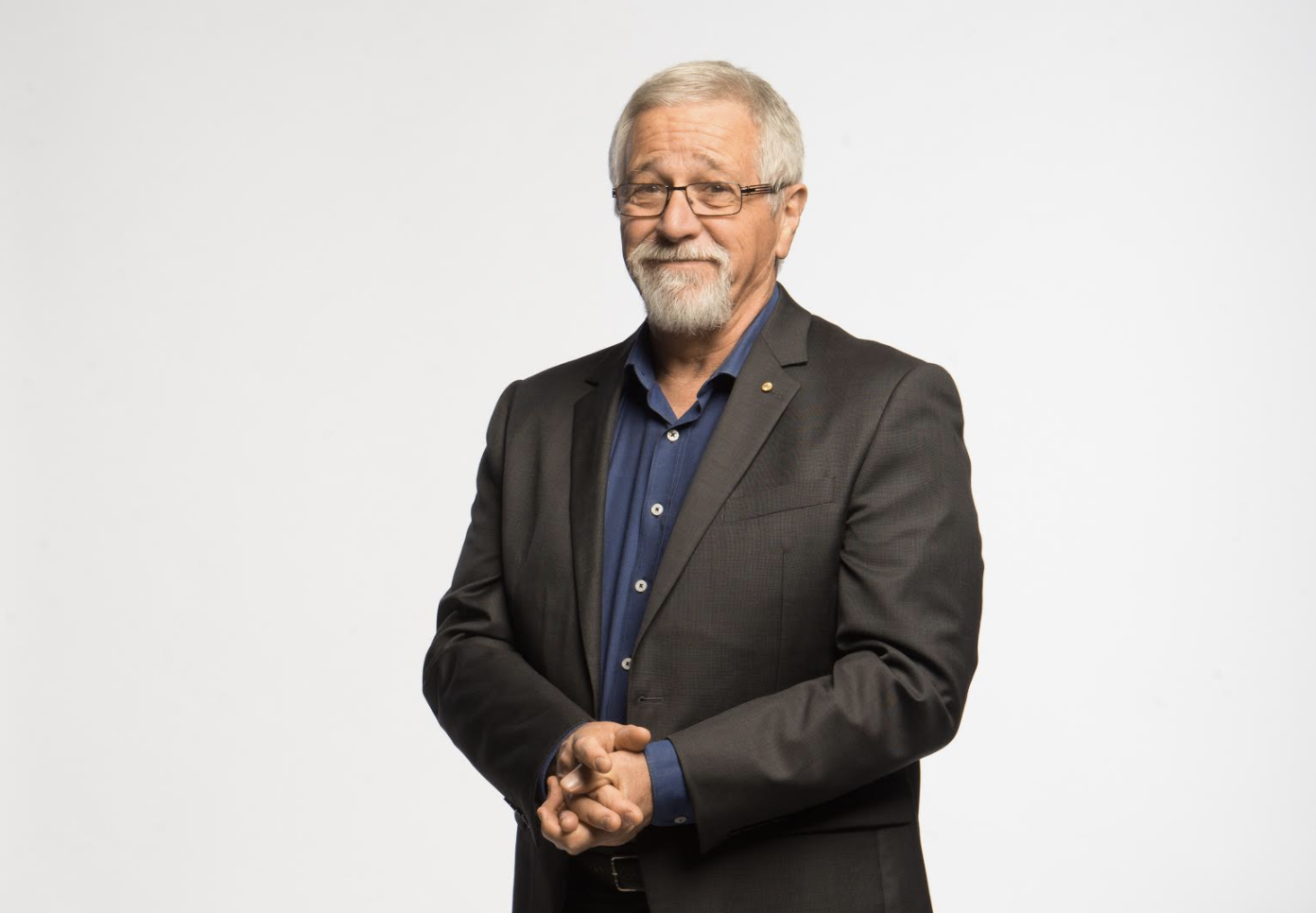Neil Mitchell’s return to the studio after 300 days: Awkward, ‘no bullshit’, and lots of sanitiser

3AW Mornings host Neil Mitchell spent over 300 days working and broadcasting from home. He returned to the studio this week in Melbourne and speaks to Radio Today’s Vivienne Kelly about what he’s learned from his most difficult year, and why heading back in has been a little bit awkward.
3AW’s Mornings host Neil Mitchell spent 311 days broadcasting his top-rating show from home throughout Melbourne’s COVID-19 lockdowns.
311 days. To be more specific, that’s 7,464 hours, or 447,840 minutes, or, heaven forbid, 26,870,400 seconds.
Now, obviously, the full 26 million-odd seconds were not spent behind the microphone, and Mitchell likely indulged in other lockdown/ iso activities like the rest of us – whether it be sourdough baking, fitness challenges, staring into the middle distance with a foreboding sense of doom and existential dread, binging on Netflix’s Tiger King, or countless House Party chats (remember House Party?) – but it’s still an awfully long time to broadcast from somewhere that’s not your studio.
The time at home, Mitchell tells Radio Today, taught him some brevity, which he hopes to carry back into the Nine Radio studios. Keeping things shorter. Simpler.
“If I’m doing an editorial on something I’m passionate about, I’ve got a habit, which has been honed over the years, of saying too much, writing too much, saying too much – when it can be just as powerful, perhaps even more powerful, to be brief. And I think I learned that because I had so many other things to do when I was remote. And I think I learned I’ve just got to taper a bit, which is what I’ve done,” he explains.
“And I think that’s a good thing, keeping the program moving. I think we’ll get a faster program. That’s been the nature of the issue, of course, but it’s probably faster, and I’m being a bit more careful about my verbosity.”
There may have been lessons for the veteran broadcaster, but it was still the toughest year he’s ever put in, he says.
He’s aware many people across the word, in Australia, and in Melbourne alone, did it tighter than he did – losing businesses, being locked up for 23 hours a day, becoming isolated from family and friends, facing death and destruction overseas – but his role, in being a voice of Melbourne, took its toll.
“It was a tough year because it was emotional. It was intense. At times you felt like you were counselling half a million people. It was fast moving. And I cannot remember a story that engaged people as much,” he says.
Mithcell with an ACRA back in 2015
Sure, the election of Gough Whitlam in 1972 may have shaken up the local political scene and stirred a sense of change in people, but it didn’t completely take over their lives. Even his dismissal in 1975 – conversation, controversy and conspiracy starter though it may have been – didn’t reach into every corner of every listeners’ life.
9/11 too, was huge. 2002’s Bali bombings, no doubt devastating. But COVID-19, Mitchell says, hit everyone, everywhere, and there was no avoiding it.
The mood in his home city as it emerges from the lockdowns and looks to a slightly different 2021, with many returning to work alongside Mitchell, is nervous, he says.
“No doubt they’re edgy,” he says of the town his voice booms into. “But I think they’re resilient. And I’ve been trying to sort of talk about the optimism.
“We’re going to have a vaccine, which will make a difference one way or another. We’ve learnt an enormous amount about handling hotel quarantine and about handling contact tracing. We’ve learnt an enormous amount more about the virus internationally.
“People understand and are more tuned into what’s going on. They don’t like it, they don’t want it, but they’re more likely to understand and accept it.”
Mitchell is aware this need for community information and understanding, and the journey from denial to acceptance, is a key part of why 3AW surged even more in the ratings surveys in 2020.
“I think we offered that mix of information, of comment, and as I said, information that reaches into every life, some analysis of it, and also companionship. And that meant people didn’t feel cut off from the world,” he says.
“We were managing to relate directly to people. There was none of the usual bullshit. I mean, if people talked bullshit, then they got dealt with. I remember saying at one stage to a politician, ‘Don’t give me spin. This is too important. We haven’t got time for spin.’ And that’s an attitude that’s continued, well it’s an attitude I’ve continued.”
He recognises that should the pandemic ease, so will his ratings. And whilst he’s grateful for the record support and engagement, he says celebrating the milestones is out of the question.
“I wouldn’t say for a moment that ratings will stay at that level, but for once it will be a good thing if they go down, because it might show that the virus has eased,” he says.
“We didn’t celebrate them because of what they were based on, but it was quietly reassuring to know that what we were doing, the audience were getting some value out of.”
Mitchell is also quietly celebrating the little moments of creativity, interaction and connection with his staff now that he can walk the halls once more, but it was still a challenge coming back.
“Look, I’ve been doing this for over 30 years, so I guess you don’t expect big change [in going back], but it was a little bit awkward. It just felt a little bit awkward. I had to wear decent clothes, for example, rather than a t-shirt and tracksuit pants. I had to get in the car and drive to work,” he says.
“I suppose the biggest change I’ve noticed is we’re using sanitiser and wipes everywhere [and] my production staff have been in the gym for a year and look big and strong.”
As for what’s next, Mitchell says he’s taking it one day at a time.
“I’m very rarely looking at this in terms of ‘Where am I going?’ I deal day to day… I won’t be setting any ratings targets or anything like that. Success is to keep the mood right and to keep in touch. I love saying to my crew ‘What is the mood today? Is the audience angry today? Are they upset? Do they need diversion? You know, what is it?’ And we put a lot of effort into getting the mood right,” he says.
“It will be a great year if we manage to be getting back to normality…Success is what we do tomorrow. What we did today, I can’t even remember. It’s what we do tomorrow.”


